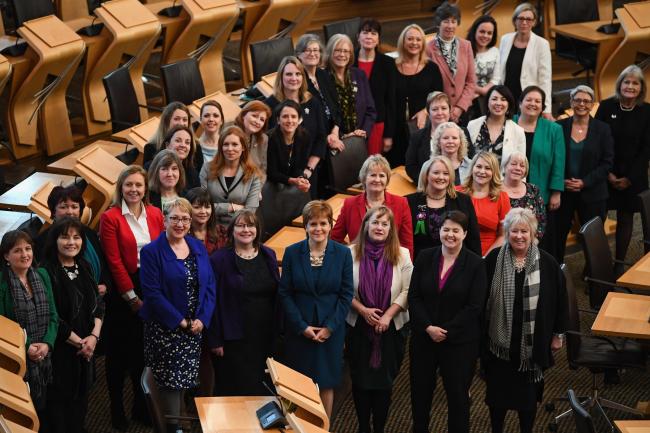The Status of Women In Scotland – All-Women Shortlists
UN Women invited submissions to the Commission on the Status of Women with information relating to alleged violations of human rights that affect the status of women in any country in the world. Our full submission can be found here but we have also turned each section into the following stand alone blog pieces:
Gender Representation on Public Boards Act I All-Women Shortlists I Census and Data Collection on Sex I Hate Crime and Public Order Act I Prisons I Women’s Services and the Genuine Occupational Requirement I Conclusions

- The political participation of women in Scotland has not yet achieved full equality, and, as such, still requires positive temporary measures to ensure women’s equal participation in the Scottish Parliament. In 2016 only 45 women were elected as Members of the Scottish Parliament (MSP), representing 35% of Scotland’s 129 MSPs. In the 2021 election the number of women MSPs rose to 58 (45%).
- In preparation for the May 2021 election the executive committee of the Scottish National Party (SNP) – Scotland’s largest political party and the party of Government – decided to use the positive measure of all-women shortlists (AWS) for the selection of candidates in the eight constituencies where their sitting MSP was retiring or standing down from the position.1
- AWS are legislated for by Part 7, s104 of the Equality Act 2010,2&3 and are based on the protected characteristic of sex, defined according to biology in the same Act,4&5 and not by (the non-protected in UK law) self-declared gender identity or by holding the separate protected characteristic of gender reassignment.
- Despite this, in at least two of the constituency areas male candidates were accepted onto AWS on the basis of their self-identification as women. Not that it should make any difference, but both candidates are believed not to hold a Gender Recognition Certificate – one certainly confirmed this in media interviews.
- This was a deliberate decision by the SNP to once again implement their undemocratic and unevidenced policy that men who self-identify as women are women, despite the fact this does not comply with the Gender Recognition Act or the Equality Act. (see paragraphs 12 – 15 in the Gender Representation on Public Boards Act section for how this policy was discovered).
- Women in the constituencies who raised the breach of AWS laws were ignored and the national regulator, the Electoral Commission, said that it was not within their remit to investigate. Therefore, FWS addressed these violations in a solicitor’s letter to the SNP,6 requesting that immediate steps were taken to comply with the terms of the AWS in the Equality Act, in the hope that the matter would be resolved without the need to initiate legal action. The SNP failed to respond.
- In the end, neither of the male candidates were selected from the shortlists to represent the constituencies at the Scottish election, and the two women who were selected, and fortunately not displaced, went on to become MSPs at the Scottish Parliament.
- It remains concerning that the SNP had no checks or monitoring in place to ensure their compliance with the principle of equality between the sexes and the positive measures legislated to achieve this for women. The ease with which they replaced the legal definition of “woman” with their own definition to include males is quite frightening, along with their refusal to discuss the matter or be held accountable. Having flouted the law with no repercussions it is likely that at the next election the same situation will occur, with claims that a precedent has already been set.
References
- The National, 16 October 2019, “SNP plan to have all-female shortlists for 2021”
- Equality Act 2010, Part 7, s104
- Equality Act 2010, s104 Explanatory Notes
- Equality Act 2010, Definition of Sex
- Equality Act 2010, Definition of Woman
- Letter to SNP re AWS
Jump to:
Gender Representation on Public Boards Act I All-Women Shortlists I Census and Data Collection on Sex I Hate Crime and Public Order Act I Prisons I Women’s Services and the Genuine Occupational Requirement I Conclusions
